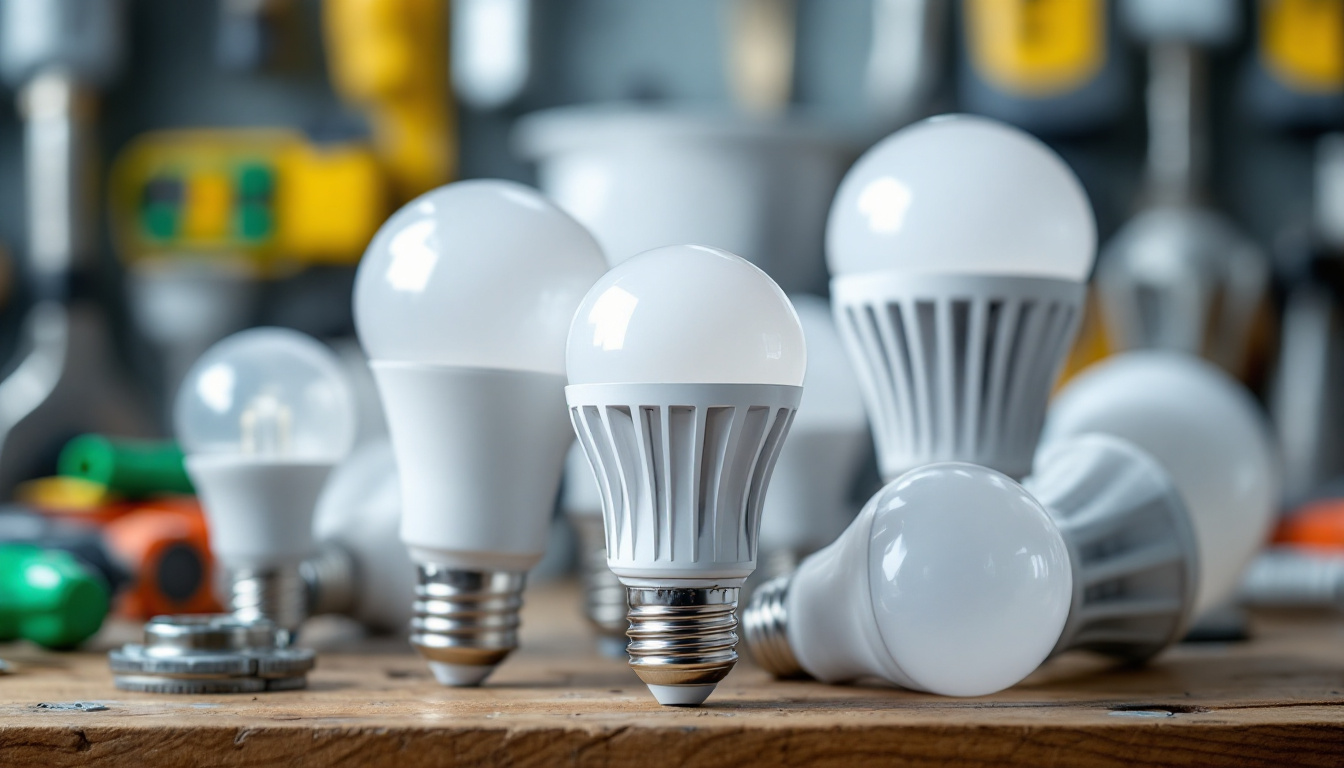
In an era where energy efficiency is paramount, the integration of solar lighting solutions is becoming increasingly relevant. For lighting contractors, understanding the nuances of solar-powered lighting systems is essential for staying competitive and meeting the evolving demands of clients. This article delves into the benefits, technologies, and considerations surrounding solar lighting, equipping contractors with the knowledge needed to excel in this growing field.
Solar lighting offers a myriad of benefits that make it an attractive option for both residential and commercial applications. From cost savings to environmental impact, understanding these advantages can help contractors make informed recommendations to their clients.
One of the most compelling reasons to consider solar lighting is the potential for significant cost savings. Solar lights operate independently of the electrical grid, which means that once the initial investment is made, ongoing electricity costs are virtually eliminated. This can lead to substantial savings over time, particularly for large installations or areas that require frequent lighting.
Moreover, many solar lighting systems require minimal maintenance, further reducing long-term costs. With fewer components that can fail, contractors can assure clients of a reliable and economical solution. Additionally, the installation process for solar lights is often simpler and quicker compared to traditional lighting systems, as there is no need for extensive wiring or trenching. This can result in lower labor costs and faster project completion times, making solar lighting an even more appealing choice for budget-conscious clients.
Solar lighting systems harness renewable energy, making them an environmentally friendly choice. By utilizing sunlight, these systems reduce reliance on fossil fuels, thereby decreasing greenhouse gas emissions. This aligns with the growing trend toward sustainability in both residential and commercial settings.
For contractors, promoting solar lighting can enhance their reputation as environmentally conscious professionals. Clients are increasingly looking for ways to reduce their carbon footprint, and offering solar solutions can position contractors as leaders in sustainable practices. Furthermore, solar lighting can contribute to local biodiversity by minimizing light pollution, which is known to disrupt wildlife habitats. By choosing solar, clients not only invest in their properties but also contribute to a healthier ecosystem, making it a win-win situation for both the environment and the community.
To effectively recommend and install solar lighting systems, contractors must familiarize themselves with the various technologies available. Each type of solar lighting has unique features and applications, making it crucial to choose the right system for specific needs.
Solar LED lights are among the most popular options due to their energy efficiency and longevity. LEDs consume significantly less power than traditional incandescent bulbs, which allows for longer operation times on a single charge. Additionally, advancements in LED technology have led to brighter and more versatile lighting solutions.
These lights are ideal for a wide range of applications, from pathway lighting to security lighting. Their low energy consumption and high output make them an excellent choice for contractors looking to provide efficient solutions. Furthermore, many solar LED lights now come with features such as motion sensors and adjustable brightness settings, allowing for enhanced functionality and energy savings. This adaptability makes them suitable for both residential and commercial projects, where varying lighting needs can be met with ease.
For larger installations, solar street lights are a prominent option. These systems are designed to illuminate roadways, pathways, and other public spaces. Equipped with powerful solar panels and batteries, solar street lights can operate throughout the night, enhancing safety and visibility.
Contractors should consider factors such as light output, battery capacity, and installation location when recommending solar street lights. Understanding local regulations and requirements for street lighting can also aid in ensuring compliance and effectiveness. Additionally, the integration of smart technology into solar street lights is becoming increasingly common. Features such as remote monitoring and control, as well as the ability to adjust lighting based on pedestrian traffic, can significantly enhance the efficiency and utility of these systems, making them a forward-thinking choice for urban planning.
Solar garden lights are popular for residential landscaping, providing aesthetic appeal while being functional. These lights come in various designs and styles, allowing homeowners to enhance their outdoor spaces without incurring high energy costs.
When advising clients on garden lighting, contractors should discuss the importance of selecting models with adequate brightness and design compatibility with the overall landscaping theme. This attention to detail can significantly impact customer satisfaction. Moreover, solar garden lights can also serve ecological purposes; many models are designed to attract beneficial insects or feature designs that blend seamlessly with natural surroundings. By choosing solar garden lights that are both visually appealing and environmentally friendly, homeowners can create a harmonious outdoor atmosphere that promotes sustainability while enjoying the beauty of their gardens. Additionally, the ease of installation and low maintenance requirements of these lights make them an attractive option for those looking to enhance their outdoor spaces without the hassle of traditional electrical systems.
Installing solar lighting systems requires careful planning and consideration. Contractors must assess various factors to ensure optimal performance and client satisfaction.
A thorough site assessment is critical before installation. Contractors should evaluate the amount of sunlight the location receives throughout the day. Areas with ample direct sunlight will yield better performance from solar lights, while shaded areas may require additional planning or alternative solutions.
Additionally, understanding the layout of the space can help in determining the optimal placement of lights. This includes considering potential obstructions and ensuring that the light will adequately illuminate the desired areas.
The choice of battery is another vital consideration in solar lighting systems. Different types of batteries offer varying performance levels, lifespans, and charging capabilities. Lithium-ion batteries, for example, are known for their efficiency and longevity, while lead-acid batteries are more economical but may require more frequent replacement.
Contractors should educate clients about the advantages and disadvantages of different battery types, helping them make informed decisions based on their specific needs and budget.
While solar lighting systems are generally low-maintenance, some upkeep is necessary to ensure optimal performance and longevity. Contractors should provide clients with guidance on how to care for their solar lights effectively.
Solar panels require regular cleaning to maintain efficiency. Dust, dirt, and debris can accumulate on the panels, blocking sunlight and reducing charging capabilities. Contractors should recommend a cleaning schedule, particularly in areas prone to dust or pollution.
Clients should be informed about the best practices for cleaning solar panels, such as using a soft cloth and mild soap, to avoid damaging the surface.
As mentioned earlier, battery selection plays a crucial role in the performance of solar lighting systems. Contractors should advise clients on how to monitor battery health and recognize signs of deterioration. Regularly checking connections and ensuring that batteries are charged properly can extend their lifespan.
In some cases, contractors may need to replace batteries as part of routine maintenance. Providing clients with information on when to replace batteries can help prevent unexpected outages.
Despite the growing popularity of solar lighting, several misconceptions persist that can hinder its adoption. Addressing these misconceptions can empower contractors to educate their clients effectively.
A common belief is that solar lights are ineffective in cloudy or rainy weather. While it is true that solar panels generate less energy under such conditions, modern solar lights are designed to store energy efficiently. Many systems can still operate adequately even with reduced sunlight.
Contractors should reassure clients that solar lights can function well in various weather conditions, especially when equipped with high-quality batteries and efficient solar panels.
Another misconception revolves around the initial costs associated with solar lighting systems. While the upfront investment may be higher than traditional lighting options, the long-term savings on electricity and maintenance can far outweigh these initial costs.
Contractors should provide clients with a clear breakdown of potential savings over time, helping them see the value in investing in solar lighting solutions.
The future of solar lighting is bright, with ongoing advancements in technology and increasing awareness of sustainability. As more consumers seek eco-friendly solutions, the demand for solar lighting systems is expected to rise.
Innovations in solar technology continue to enhance the efficiency and effectiveness of solar lighting systems. Developments in photovoltaic cells, battery technology, and LED efficiency are paving the way for even more reliable and powerful solar solutions.
Contractors should stay informed about these advancements to provide clients with the latest and most effective products available on the market.
The shift towards renewable energy sources is driving increased market demand for solar lighting. As communities and businesses prioritize sustainability, contractors who specialize in solar lighting will find themselves well-positioned to meet this growing need.
By embracing solar solutions and educating clients about their benefits, contractors can not only enhance their service offerings but also contribute to a more sustainable future.
As the world moves towards more energy-efficient solutions, solar lighting stands out as a viable and sustainable option for contractors. By understanding the advantages, technologies, and considerations associated with solar lighting, contractors can effectively meet the needs of their clients while promoting environmentally friendly practices.
With the right knowledge and approach, contractors can harness the power of solar lighting to illuminate spaces while reducing costs and environmental impact. Embracing this technology not only enhances business opportunities but also contributes to a greener future for all.
Ready to lead the charge in energy-efficient lighting solutions? At LumenWholesale, we provide contractors like you with the highest quality solar lighting products at unbeatable wholesale prices. Say goodbye to middleman markups and hello to spec-grade lighting that meets the most rigorous industry standards. With our vast selection, free shipping on bulk orders, and commitment to value, you can equip your projects with the best without breaking the bank. Elevate your lighting game and contribute to a sustainable future by choosing Wholesale Lighting at the Best Value with LumenWholesale today.

Discover essential tips and expert advice on installing ceiling light fixture mounting brackets with ease.

Discover how light bulbs with prongs are revolutionizing the lighting industry by enhancing efficiency and ease for contractors.

Discover essential insights into architectural grid mount lights tailored for lighting contractors.

Discover the essential tips and expert advice for lighting contractors on selecting the perfect under shelf lights.